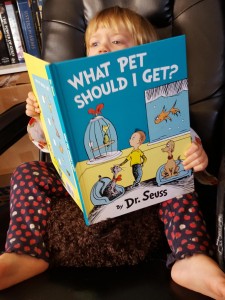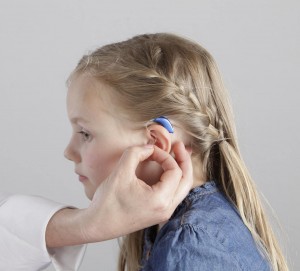Disability Benefits for Speech Disorders: How to Apply on Behalf of a Child
Guest Post! As the Community Outreach Manager of Social Security Disability Help, Deanna Powers knows her way around applying for disability benefits on behalf of a child with a speech disorder.
From trips to the doctor’s office to therapist bills, if you are the parent of a child with a speech disorder, you know the added costs your family incurs. Fortunately, there are financial resources available for families who qualify. The Social Security Administration (SSA) offers monthly disability benefits for speech disorders for children who have a qualifying disability.
Children qualify for Supplemental Security Income, or SSI. SSI has two standards that need to be met in order for a child to qualify: one is financial, and the other is medical.
Photo by Eva Rinaldi
Financially Qualifying for Supplemental Security Income

Photo by Quinn Dombrowski
Although a child does not have an income, SSI benefits are strictly for people with a financial need. The SSA will instead look at an entire household’s income when determining whether or not a child with a speech disorder will qualify for SSI benefits.
Financial qualification is the #1 reason children are denied SSI benefits. If you or your spouse earn a decent income, your child will not qualify for SSI benefits, regardless of the severity of his or her speech disorder. The SSA has a chart listing how much your household can earn while still qualifying for SSI benefits. If you are married or if you have more than one child, your income thresholds will be higher.
Many families find that if their child is denied due to financial ineligibility, they can then apply and be approved once the child is age 18. At 18, the SSA no longer factors parents’ income when determining eligibility.
Medically Qualifying for SSI with a Speech Disorder

Photo by Bundesinnung Hörgeräteakustiker
Every time the SSA receives an application for disability benefits, it will compare the applicant’s illness or disability to its own medical guide known as the Blue Book. Children have their own version of the Blue Book.
There are a few ways in which a child can meet a Blue Book listing with a speech disorder. One of the more common causes of speech disorders is hearing loss. A child will medically qualify for disability benefits with hearing loss if one of the following is met:
- The child is under age 5 and has an average air conduction hearing threshold of 50 decibels or greater.
- The child is aged 5-18 and has an average air conduction hearing threshold of 70 decibels, PLUS an average bone conduction hearing threshold of 40 decibels or greater.
- The child has a word recognition score of 40% or less. This is determined using a standardized test of phonetically balanced words.
- The child has an average air conduction hearing threshold of 50 decibels or greater, PLUS a marked limitation in speech or language.
- The child has received a cochlear implant. This will be considered a disability until age 5, or 1 year after surgery is preformed, whichever is later.
Qualifying for hearing loss relies on strong medical evidence. Speak with your child’s audiologist to make sure that he or she has taken the required tests to qualify for disability benefits.
Medically Qualifying without Hearing Loss
Other disabilities that may cause speech disorders include Down syndrome or autism. Down syndrome automatically qualifies for disability benefits 98% of the time. Mosaic Down syndrome, an uncommon form of Down syndrome that affects just 2% of the Down syndrome population, does not “automatically” qualify medically.
Autism disorder is listed in the SSA’s Blue Book, but it is challenging for children to be approved. You must be able to show that your child experiences all of the following:
- Difficulty with social interaction
- Difficulty with verbal and nonverbal communication
- Restriction in interests or activities
A child diagnosed with autism with a speech disorder will likely meet the first two qualifying factors. If your child with autism also has a restriction in interests, he or she could qualify for disability benefits.
If your child’s speech disorder causes him or her to experience difficulties in the following areas, it’s possible for him or her to qualify for benefits:
- Ability to communicate with others
- Ability to follow directions from adults
- Ability to play with other children
- Ability to go to school and receive an education
Applying for SSI Benefits with a Speech Disorder
If you are applying for disability benefits on behalf of your child, you will need to schedule an appointment at your local SSA office. You can do this by calling the SSA at 1-800-772-1213. All parents preparing to apply should also go through the Child Disability Starter Kit to find out what documents they should bring along to the in-person interview.



